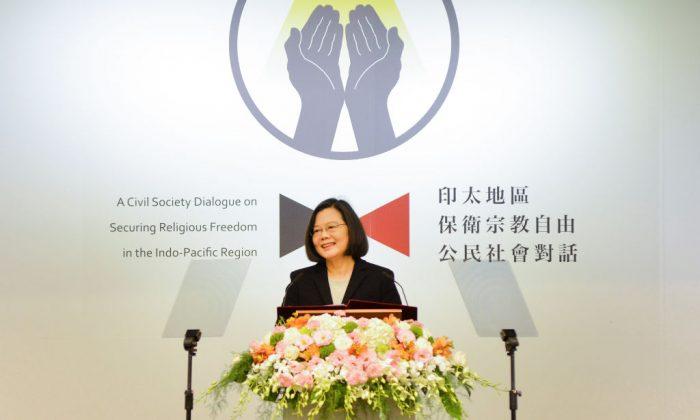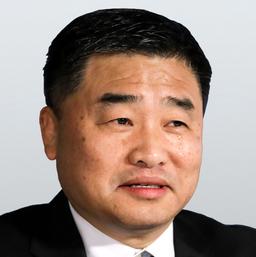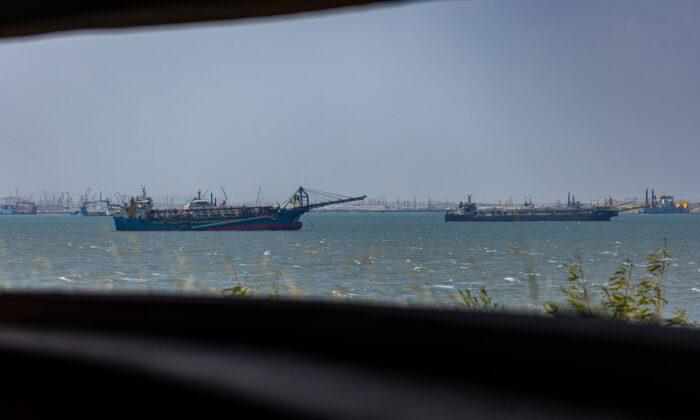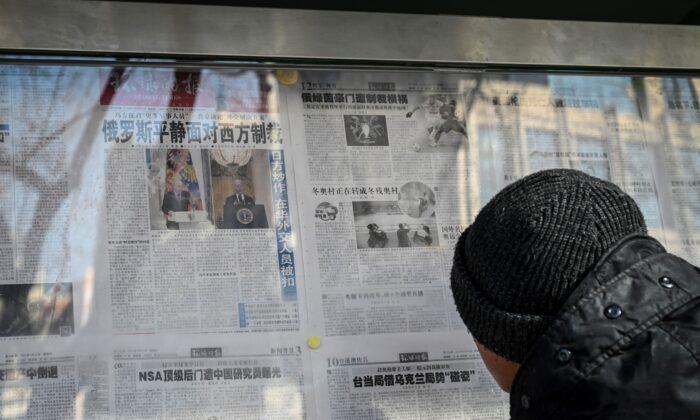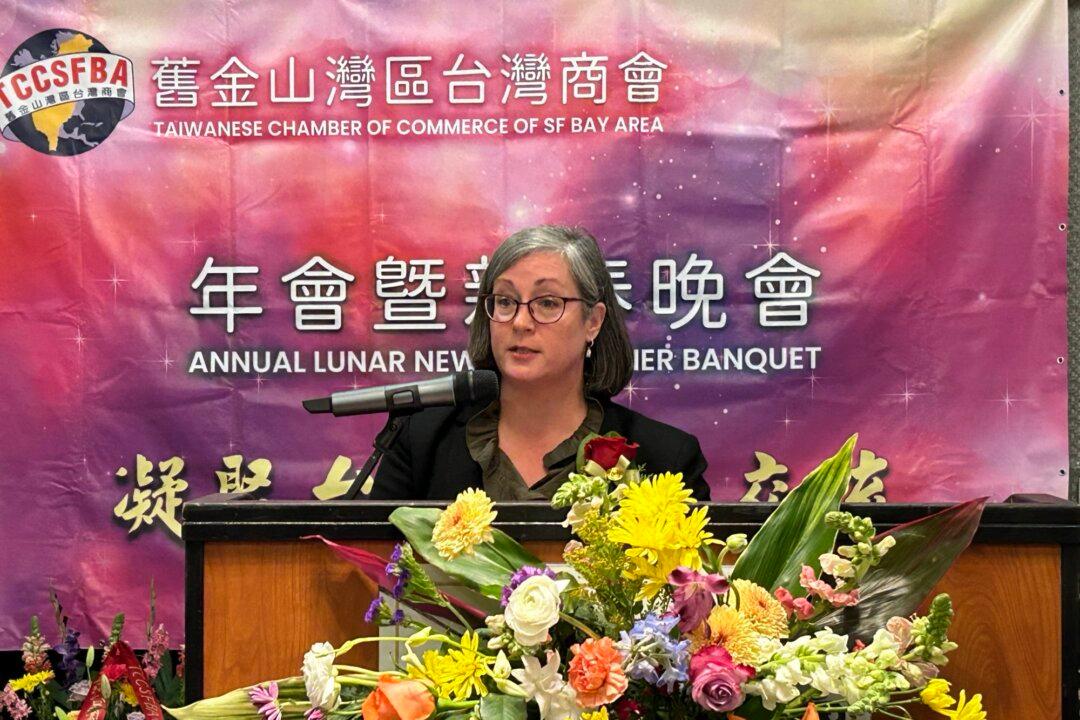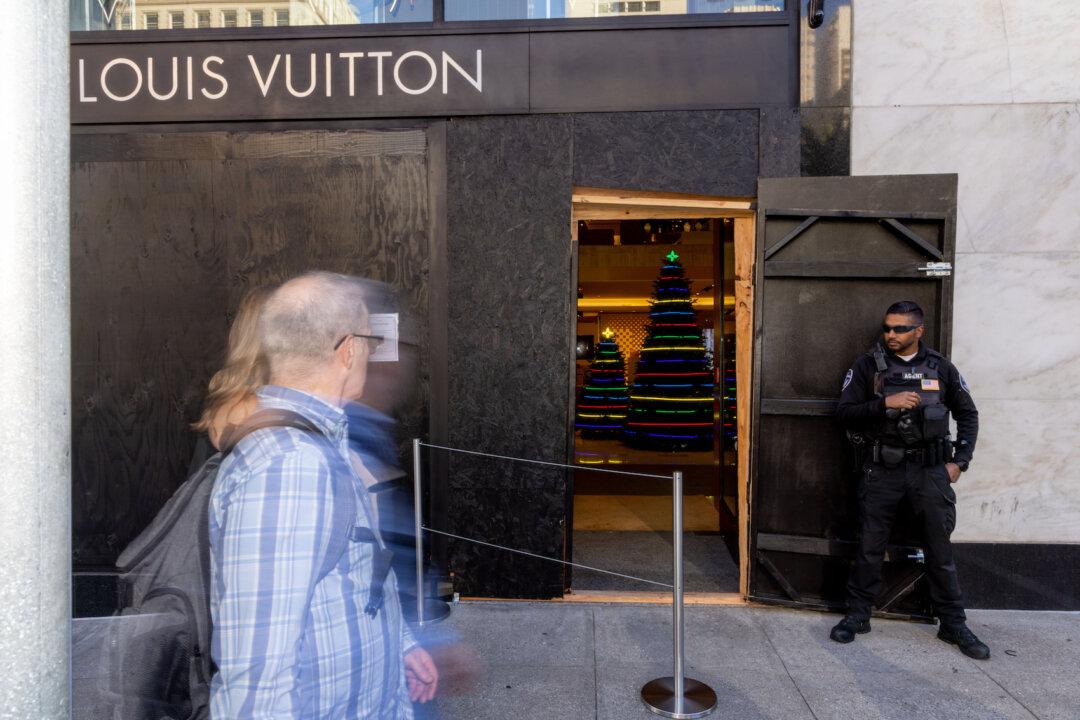SAN FRANCISCO—A new platform called the Indo-Pacific Democratic Governance Consultation (IPDGC) was officially launched on March 19.
The platform aims to strengthen bilateral relations between the United States and Taiwan and helps defend freedom and democracy for the nations in the region. The IPDGC is a joint initiative of the American Institute in Taiwan (AIT) and Taiwan’s Ministry of Foreign Affairs (MOFA).
The platform was launched while the Western world has been expressing growing concern about China’s escalated efforts to penetrate and interfere with free and democratic societies.
Stanford University recently published a report summarizing China’s penetration into American media, universities, think tanks, politics, and other parts of American civil society.
The 200-page report, titled “Chinese Influence and American Interests,” states in its afterword: “Once largely a form of economic competition, China’s recent turn to military and political rivalry with the United States has changed the whole equation of the bilateral relationship.”
Compared with the United States, Taiwan has expressed a more compelling need to protect its freedom and its young democracy.
“Taiwan is the first line of defense in an ideological battle that is taking place in Australia, Japan, the United States, Europe, and in like-minded societies all over the world,” said Taiwanese Foreign Minister Joseph Wu in his remarks to the World Affairs Council (WAC) in Los Angeles on March 11.
Wu stated in his speech to the WAC that Taiwan “felt the brunt of China’s intensified campaign to subvert Taiwan’s democracy every day, through military intimidation, economic coercion, diplomatic assaults, disinformation, and political subversion, seeking to undermine our elected government and interfere with our elections.”
The new IPDGC platform will serve “between Taiwan and the United States to defend and promote shared values of democracy, human rights, freedom, and good governance in the Indo-Pacific region and beyond,” Wu said at the opening ceremony of the IPDGC in Taipei.
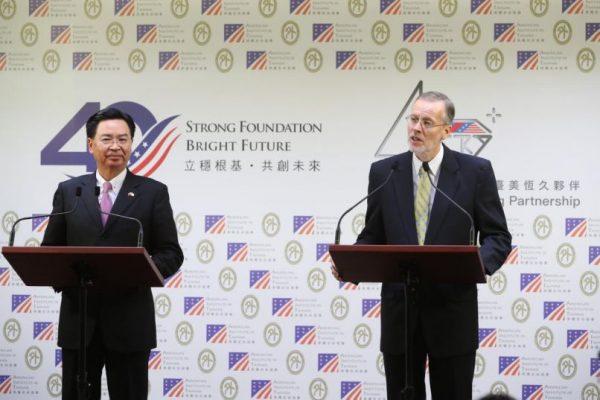
The platform will also help the United States and Taiwan increase mutual cooperation and pursue “joint projects in the region that assist other countries in addressing the governance challenges of the day,” Brent Christensen, Director of the AIT, said at the ceremony.
Christensen also praised Taiwan as a valuable partner for the United States in promoting a free and open Indo-Pacific region.
The press release also announced that U.S. Vice President Mike Pence had led an initiative to cooperate with allies, partners, and regional institutions in the Indo-Pacific region to promote sound, just, and responsive governance.
The Importance of Taiwan
The United States has had no formal diplomatic relations with Taiwan since 1979, after President Jimmy Carter’s administration formalized U.S.-China relations. Taiwan has constantly been under pressure from China’s growing military and economic power.In a speech on Jan. 2, Chinese leader Xi Jinping said that “one nation with two political systems” is the basic strategy to unify Taiwan with China.
The model of “one country, two systems” was created prior to the return of Hong Kong to China. Beijing’s leader hoped that the practice of the model in Hong Kong would pave the way for Beijing to unify Taiwan with China as well.
However, many people in the international community have considered the model a failure in Hong Kong, since the level of freedom and democracy in Hong Kong has continuously gone downhill since Hong Kong’s return to China.
During the 79-day Umbrella Movement in 2014, tens of thousands of Hong Kong residents, including many high school students, took to the streets to protest for universal suffrage. Hong Kong authorities cracked down on the movement.
Taiwan’s president Tsai Ing-wen, in contrast to China’s Xi, has been promoting a “Taiwan consensus” ever since 2011, before she was elected.
The Taiwan consensus includes freedom, democracy, human rights, and provides an alternative to the model of one nation with two political systems proposed by China.
China has been the world’s second largest economic power by GDP since 2010. However, its economic growth hasn’t brought the Chinese people the freedom and democracy that the Western world expected. In particular, China still lacks religious freedom.
“It seems that the Chinese government is at war with faith. It’s a war they will not win,” said Sam Brownback, U.S. Ambassador-at-Large for International Religious Freedom, during his visit to Hong Kong in early March.
“The Chinese Communist Party must hear the cry of its people for religious freedom,” Brownback said.
He spoke about groups in China that are persecuted for their faith, including Catholics, Muslims, Tibetans, and practitioners of the spiritual discipline Falun Gong.
China and Taiwan, which have similar cultural backgrounds, contrast sharply in the area of religious freedom.
Falun Gong was very popular in China before the Chinese regime started persecuting the practice in 1999. In Taiwan, Falun Gong is not persecuted and has steadily flourished.
At the opening ceremony of the IPDGC, Christensen said that democratic values, fundamental freedoms, and human rights “belong to each and every member of the human race all around the world. They are God-given, universal rights. The failure of some governments to recognize this truth does not detract from it in the slightest.”
Sun Yat-sen is honored as the founder of the Republic of China (now embodied in Taiwan), the first democratic republic in Asia, based on the values of the American founding fathers and traditional Chinese culture.
More than a century later, Taiwan is at the frontline facing the strongest communist tyranny in human history. The small island nation with a population of 23 million is joining the leader of the free world in defending the common values shared by all democratic countries in the region.
“Taiwan’s embrace of democracy shows a better path for all the Chinese people,” Vice-President Mike Pence said in a speech at the Hudson Institute last October.
